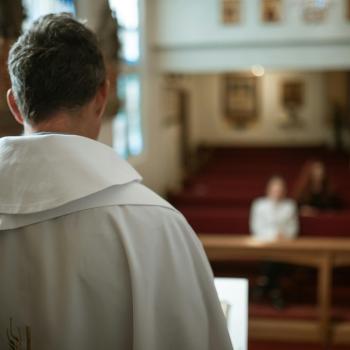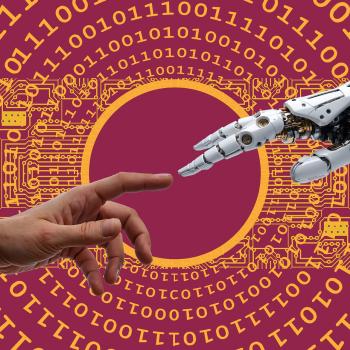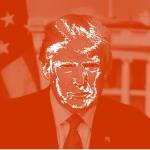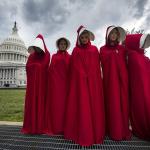I have mixed feelings about recent Supreme Court decisions. The decision on presidential immunity created a constitutional crisis. I believe the Supreme Court ignored the Constitution, created law, and it could lead to disaster. This isn’t sensationalism, it’s a serious consideration.
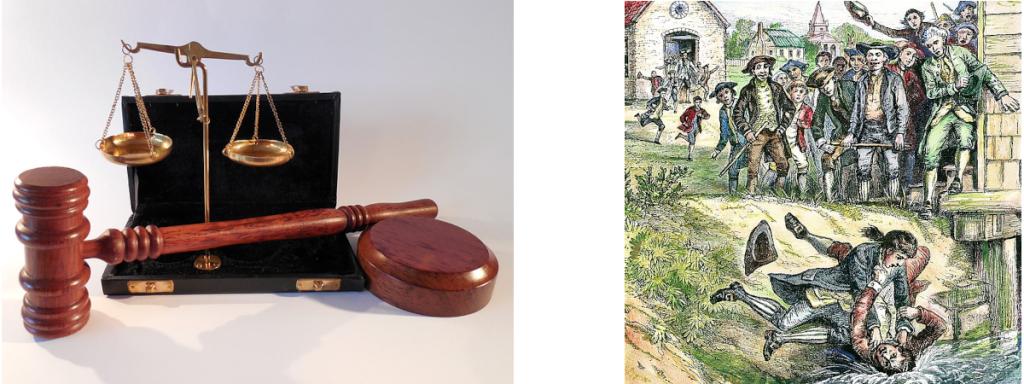
Shays’ Rebellion is relevant to today’s US political divisions. Shays’ Rebellion (1786-87) was an armed insurrection by rural farmers in western and central Massachusetts, sparked by the state government’s unpopular response to a debt crisis. The insurrection reached its climax when the rebels, referred to by some scholars as ‘Shaysites’, unsuccessfully assaulted a federal arsenal in Springfield, Massachusetts, ultimately leading to the rebellion’s dissolution.
In addition, with the Constitution as the backdrop for all decisions, they are kind of on track with the past, subject to interpretation. But the concept they follow that the Constitution is a forever document is false from the beginning of its existence. Yet they ignored their interpretive opinion by making new law. We need to find a resolution to this about the Constitution.
The Supreme Court should not be making new law, and shouldn’t be throwing the country into chaos.
“Do you suppose that I came to grant peace on earth? I tell you, no, but rather division; for from now on five members in one household will be divided, three against two and two against three. They will be divided, father against son and son against father, mother against daughter and daughter against mother, mother-in-law against daughter-in-law and daughter-in-law against mother-in-law.” – Luke 12:51-53 (NASB)
Jesus was a ground shaker. Two thousand years later, we haven’t fully understood what he meant, just as we are still interpreting the Constitution. Over 1200 US Christian denominations show that it’s all still debatable. Jesus spoke in grand terms. He gave guidance, not specifics, but he demonstrated for us what he meant. Shaking the ground got him in trouble that led to his death. Change isn’t easy, and he even said that parents and children would strongly disagree.
Conservatives, not to berate anyone, prefer that things don’t change. I understand and respect this. The last two centuries have been full of change and it’s very hard for people to adjust and keep their beliefs solid. Change places us on shaky ground.
What does the decision on presidential immunity, and other decisions, truly mean, and is there a way to move toward solid ground? The Constitution and government are complex, so this post-article is a bit long and complex.
Five points:
- Turbulent times make for divisions that affect legislation
- The US Constitution is not carved in stone
- The role of Congress
- The President and government don’t represent Christianity
- The US Constitution is in crisis
Shays’ Rebellion (1786-87) was an armed insurrection by rural farmers in western and central Massachusetts, sparked by the state government’s unpopular response to a debt crisis. The insurrection reached its climax when the rebels, referred to by some scholars as ‘Shaysites’, unsuccessfully assaulted a federal arsenal in Springfield, Massachusetts, ultimately leading to the rebellion’s dissolution.
I’m neither liberal nor conservative. The country swings back and forth, but I change at a snail’s pace. I look for well-informed experiential wisdom in decisions, not ideology, that makes the nation (country and people) better. I write under the progressive flag, but this doesn’t mean change for the sake of change. It means doing incremental things, based on experience and fairness, to make our country and lives better.
Turbulent times make for divisions that affect legislation
The Supreme Court is supposed to take into consideration the will of the people. What is the will of the people in this era? You can consider the bulk of the people or clusters.
We see a similar effect in elections in which a candidate wins by electoral votes, yet loses the wider popular vote. The nation’s division becomes sharply evident when comparing different states and regions of the country. Should the Supreme Court ignore the country’s divisions or ignore the majority? So far in elections we ignore the majority.
Complexity of Supreme Court considerations
Decisions made by the Supreme Court normally take into consideration several factors.
The Court relies on the Constitution and previous law, such as Common Law that was in effect when the Constitution was confirmed, to make its decisions. In essence, any activity is legal unless explicitly prohibited by law.
Statutory interpretation by the court can permit the influence of many factors. This is much more complex that decisions by lower courts, although they have a similar role. The Supreme Court will judge first whether to hear a case, and may use a concept called degree of “burden” to decide: rational basis, intermediate, or strict scrutiny.
Burden is “… the hierarchy of standards that courts use to determine which is weightier, a constitutional right or principle or the government’s interest against observance of the principle.” The Strict Scrutiny standard is used when a fundamental constitutional right may be infringed.
Supreme Court Justices must determine the effect the interpretation of a law may have on society. It may place unfair burdens on people or organizations. In which case, the judges can issue opinions that limit the damaging effects or the scope of their interpretation.
They can also issue opinions that explain how they interpreted the law, the intent, and any limitations they wish to put on their interpretation. These opinions are binding in that they set precedent. For example, the judge can interpret, but not rewrite, the Constitution. But their interpretation sets precedent.
In overturning Roe V Wade on abortion, the Supreme Court went against burden, precedent, the stated will of the people, and their own confirmation hearing statements. No one knows what they said in private to conservative lawmakers to get confirmed. But recent confirmations have been by conservatives of justices who hold conservative principles.
The Court can also reconsider previous decisions. This is unusual because once the Court decides, future decisions are based on it, creating a vast body of case law. Reversing a decision destroys an entire body of case law.
The US Constitution is not carved in stone
Did the Founding Fathers expect that the Constitution would be a forever document? It has proved to be of foundational and lasting value, as intended, for not just the US but as an example other countries have used to create their own.
The Founding Fathers who wrote the Constitution were not rigidly committed to it. For one thing, Congress can amend it as needed, if they can agree. The Preamble and the main body of the Constitution are the guide.
The Constitution contains within it a peaceful, legal method for changing it.
Thomas Jefferson wrote “that any Constitution expires after 19 years and must be renewed if it is not to become “an act of force and not of right””
James Madison wanted to scrap the Articles entirely, and begin again fresh, with a blank sheet of paper.
Jefferson was an originalist, who based interpretation on original intent. In an 1823 letter to William Johnson, Jefferson wrote: “On every question of construction, let us carry ourselves back to the time when the Constitution was adopted, recollect the spirit manifested in the debates, and instead of trying what meaning may be squeezed out of the text, or invented against it, conform to the probable one in which it was passed.”
The country today and its needs are not something the Founding Fathers could have envisioned. Automatic weapons, nuclear weapons, artificial intelligence, the Internet with widespread communications on any topic, an economy based on services rather than manufacturing and agriculture, the Federal Reserve, billionaires – none of these were on the horizon, and each presents unique problems.
Slavery was widespread and legal. The government and the people made it illegal.
The framers were a bunch of aristocrats who thought little of rule by the people, even if they started with “of the people, by the people, and for the people.” The word democracy isn’t even in the US Constitution. Landowners originally had the right to vote, not the people.
The US, unlike many democracies that followed, is a representative government. Those in Congress decide on the laws. The American people did not directly elect Congress from the beginning.
They limited congressional powers. Congress didn’t have the power to tax. But taxation is necessary, so they found ways to do it within Constitutional authority.
The role of Congress
In Roe V Wade, the Court held that the previous court was making law, which is not a Supreme Court function. Legislation is the role of Congress.
Thomas Jefferson and James Madison believed that the Constitution should be flexible and adaptable to changing circumstances. Alexander Hamilton believed that the Constitution should be more rigid and less subject to change, concerned that too much flexibility could undermine the stability and integrity of the government.
ARTICLE V
“The Congress, whenever two thirds of both Houses shall deem it necessary, shall propose Amendments to this Constitution, or, on the Application of the Legislatures of two-thirds of the several States, shall call a Convention for proposing Amendments, which, in either Case, shall be valid to all Intents and Purposes, as Part of this Constitution, when ratified by the Legislatures of three-fourths of the several States, or by Conventions in three-fourths thereof, as the one or the other Mode of Ratification may be proposed by the Congress.”
No formal group has addressed how to interpret the Constitution with concrete results. Is the Constitution a living document that should be changed to address evolving issues? Should we use originalism (original intent of the writers) to interpret the Constitution? Or should we use textualism for interpretation, which involves a strict reading of the text without considering intent or evolving needs? Interpretation wasn’t even an issue until Marbury v. Madison in 1803.
All of these methods, and more, have been employed or favored by individual justices. Each leads to a different result.
We are not bound by the past. I favor the living constitution, which allows us to address developing needs based on the core and amendments of the Constitution. For example, discrimination based on gender was long allowed in the US policy, even systemic. But the 14th Amendment provides that no state can “deny to any person within its jurisdiction the equal protection of the laws.” Enabled by the 14th Amendment, Title IX legislation specifically prohibits sex discrimination.
The difficulty with Congress and making laws
We obey the Constitution or change it. In between, the Court makes law, and it doesn’t possess that power. But in a divided country, we must resolve issues before they fester and lead to violence. So we do what is necessary.
To amend the Constitution takes a three-fifths majority (60%) in both the House and Senate. This rarely happens, if for no other reason than one party doesn’t want the other party to have victories. The public’s division leads to votes generally following party lines. This has been the case since after President Eisenhower in the 1950s.
If Congress could ever agree on abortion, they could enact legislation. But the legislation would face perpetual attack in the courts for years.
The more general route is for the states to make their own laws, tested in the courts, until there is a consensus of 38 states. At that time, Congress can enact the same laws to ensure uniformity in the US. But this would still come under endless attack in the courts.
If Congress could get a three-fifths majority to pass an amendment to the Constitution, which would be the most durable option, it would still come under attack in the courts.
The good thing about legislation is that it eventually undergoes enough testing in the courts to become virtually unassailable law.
With today’s divided public, legislation on abortion is unlikely unless the election of individual congressional representatives is in danger. The division in the country causes stalemate on legislation.
The President and government don’t represent Christianity
There has been much talk for decades about the US being a “Christian nation.” The founding fathers, based on historical major injustices caused by religion and state, placed separation between religion and government in the Constitution. We are individually free to have any religion we want, and the government can’t impose any religion on anyone.
The government reflects, to some extent, the virtues of the people. If the majority of the people are Christian, then their views are reflected as long as they do not obstruct more general views.
The recent US Supreme Court ruling on presidential immunity makes the idea of a state based on religion unequivocally not so. While carrying out the tasks of the office, the president can violate laws, ethics, and morals without facing consequences. The president is not bound by any sense of loyalty to any higher power than his own decisions. Except the president is bound to uphold the US Constitution.
Chief Justice Roberts believes that the claims of liberal justices regarding the possibilities arising from immunity are exaggerated. But what we’ve witnessed in the last few years is unprecedented. It includes ripping children from their mothers, inciting to riot and obstruct, secret collusion with Russia and other foreign states, having conspiracy theorists on staff, collusion through intermediaries with domestic hate groups, inspiring people to threaten or use violence against state governments, and other questionable actions. The declaration of immunity can embolden other lawless actions related to presidential duties.
Constitutional crisis
The Supreme Court set the country on the path of a constitutional crisis. It pits the immunity of the president in his official duties against the absolute constitutional rights of the American people.
Constitutional lawyers seem to robustly disagree with the Court’s ruling:
“I didn’t expect such a broad definition of absolute immunity for a president for criminal acts,” said Berkeley Law Dean Erwin Chemerinsky, one of the nation’s preeminent constitutional scholars. “While the court leaves many issues unresolved, it is a dramatic and stunning affirmation of broad, absolute immunity for a president.”
Berkeley political scientist Terri Bimes, a scholar in the history and operation of the U.S. presidency, called the court’s ruling “dangerous.”
Michael Waldman, president of the Brennan Center for Justice and author of several books about the country’s legal landscape, said there are reasons to be nervous when it comes to the prosecution of a former president and some standards would make sense.
“Here, though, the Court has issued an instruction manual for lawbreaking presidents,” Waldman said on social media. “Make sure you conspire only with other government employees. You’ll never be held to account.”
Historian and author Garrett Graff, who wrote a book on Watergate, brought up the infamous quote from President Richard Nixon — that if a president does it, that means it’s not illegal — and said nobody had believed it was true.
“All of American history argues the opposite. And yet that’s exactly what the Supreme Court agreed today,” Graff wrote. “The entire test of Watergate was no one is above the law. Today, the Supreme Court made one man above the law.”
Quote sources: https://news.berkeley.edu/2024/07/02/high-court-ruling-on-presidential-immunity-threatens-the-rule-of-law-scholars-warn/ and https://rollcall.com/2024/07/01/historians-legal-experts-express-dismay-at-trump-immunity-ruling/
In the US, the Constitution gives people the absolute right to life unless their behavior is a capital offence. The Constitution says that certain rights, such as the right to life, are inalienable (impossible to breach or take away). Loss of life is rare, with exceptions being situations like war or domestic hazards encountered by police and firefighters.
If the president takes an action in his official duties that endangers or takes human life, they violate the Constitution that they have pledged to uphold.
The Court might rule against the president’s action, and can prevent some actions from proceeding, but can’t prevent an action the president has already taken that results in death. And the president doesn’t have to answer for it. They have immunity from prosecution.
Presidents can take unconscionable actions in carrying out their official duties. Could they have a political opponent assassinated so they can remain in power? It remains to be seen, but probably. Dismissal of charges on those charged in the January 6 insurrection are being considered. Could the president pardon someone who does a political assassination? Yes. Can they control the Justice Department? Yes.
Justice Sotomayor is on target in pointing out potential extreme actions, because we live in a time of extremism and extremist acts that are reflected in the White House, and even coordinated and encouraged by the White House.
Further clouding this issue is the phrase “presumptive immunity,” used by Justice Roberts. It means a president is presumed to enjoy immunity from prosecution if his action pertains even just a small amount to his official status. This is a black hole of opportunity, sucking in any kind of criminal activity that the president might envision as part of his official duties.
Can the Constitution guard the people against grievous or capital acts by a rogue president? This is not a hypothetical situation, it’s a current crisis.
Times of crisis require unusual actions
The president must intervene in domestic disputes at times. As examples, presidents have used the US military to intervene in union labor disputes in West Virginia coal mining. That action was illegal and questionable. The president can intervene in contagions to prevent further deaths. Presidents intervene in union labor disputes when they would have a grievous impact on commerce and wellbeing. President Reagan even fired striking flight controllers, which was a questionable way to end the dispute and damaged all unions. Presidential actions have consequences.
The Constitution created a system of checks and balances. Because of the example of previous kings ruling like tyrants, they wisely decided the US would not have a king.
The Supreme Court can decide what cases it wants to take. It should not have taken this case, nor should lower courts have taken it. They don’t have the authority to create new law regarding presidential actions.
What the Court did was establish presidents as kings. They can now operate outside the law at their own discretion. For example, if a president decided a political opponent would be bad for the nation or against their concept of national security, they could take action to prevent their election, just as they do in Russia, where political assassinations are the norm.
The nation has managed presidential conduct just fine for over 200 years. Agencies effectively manage foreign and domestic problems and national security. The National Emergencies Act gives the president 136 emergency powers that can be in effect for years. The president doesn’t need to be above the law, especially not above constitutional rights.
Because of congressional disfunction reflecting both partisan fighting and a divided nation, presidents have turned to executive orders to executive branch members and agencies to keep their promises to the public.
By issuing an executive order, the president can direct executive branch members to do many things, as long as those actions abide by the law, are not overridden by Congress, and do not involve appropriating new federal money. Courts shoot down many of them.
The country has a constitutional crisis on its hands created by a Supreme Court that took on an issue it should not have and created new law that likely is not supported by the Constitution. It enables drastic effects.
Can we change this crisis? It will take years.
Conclusion
We all have to appreciate that change is difficult. Many people come along kicking and screaming. But time marches on and change happens. But change creates a tumultuous time in which extremism flares its nostrils and takes ugly actions. In writing a course on making change, I’m aware of the historical difficulties and consequences of change, but pragmatism reigns in the end: we change.
It’s natural that presidents reflect their constituents. But to believe that constituents are a homogenous base is insane. For example, in abortion, sixty-three percent of the nation wants some form of abortion to be legal. That’s a substantial majority. Yet if some candidates lose a percentage of their base by approving abortion, they probably would lose their office. Reaching a 60% threshold is difficult enough, but countering small political winds makes it impossible to effectively govern.
In this divided political climate, we need to be very careful of potential Supreme Court rulings. The Court should wait on Congress. But the Court has shown an indifference to past rulings, precedent, established law, balance of power, and makes law. On presidential immunity, their immediate reasoning isn’t faulty, but their wisdom in taking this case and attention to the intent of the Constitution is lacking. The potential repercussions are enormous and dangerous to the people.
In setting the president immune from prosecution for official actions, it acted unwisely, created law, and created a king. Some want a king. Kings can make happen what you want. But the next king can undo those things and make your situation even worse. They can also make things happen they want, which might harm everyone. Be careful what you ask for.
We need a constitutional convention to re-establish the balance of power the founding fathers enacted in the Constitution, which was wise. But this may have to wait until the dust settles on this era of extreme turbulence caused by rapid change. Hold on to your seats.
Probability Space
What probability spaces can we open in our minds to limit presidential powers to existing law, except in cases of national crisis that Congress would agree at 60% is a crisis?
Potential Space
If you think creatively and allow your mind to wander and explore the national divide, how can we find consensus on divisive issues?
References
Historians, legal experts express dismay at Trump immunity ruling. – Roll Call
High court ruling on presidential immunity threatens the rule of law, scholars warn. – Berkeley News.
The President’s Domestic Powers.
Public Opinion on Abortion. – Pew Research
Is the US a democracy? Yes, but It’s more complicated than you thought. – We the Veterans.
Why the Constitution’s Framers didn’t want us to directly elect the president.
Guns and the US Constitution. Nations Agenda (this author).
________________________
– Dorian
Our answer is God. God’s answer is us. Together we make the world better.
Restore and recreate. Take time to celebrate life. Laugh, sing, and dance regularly, even every day. Happy.
Bible scripture verses are New American Standard Version (NASB), unless noted.
My movie review of Horizon: An American Saga – Chapter 1
Author’s books
Appease the Volcano: What does God require from people? The voices of the ancients from many religions echo much of the same things: It starts with law, then mercy and forgiveness, then love.
The Prophetic Pattern: Ancient and Modern Prophecy: How to distinguish the intent of various types of prophecies and oracles, both ancient and modern.
Preparing For the Future Of Work and Education: Analysis of the kinds of jobs that AI and Robotics will displace, and the educational requirements for them. AI will replace or augment thirty percent of jobs. This is an in-depth analysis citing many authoritative sources.







